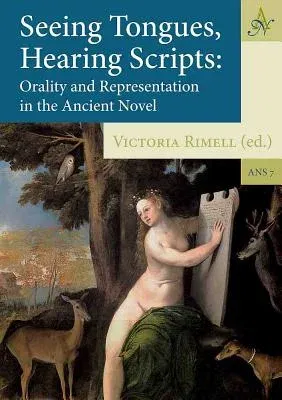Victoria Rimell
(Author)Seeing Tongues, Hearing Scripts: Orality and Representation in the Ancient NovelHardcover, 31 December 2007

Qty
1
Turbo
Ships in 2 - 3 days
Only 4 left
Free Delivery
Cash on Delivery
15 Days
Free Returns
Secure Checkout

Part of Series
Ancient Narrative Supplements
Part of Series
Ancient Narrative Supplementum
Part of Series
Ancient Narrative,
Print Length
340 pages
Language
English
Publisher
Barkhuis
Date Published
31 Dec 2007
ISBN-10
9077922237
ISBN-13
9789077922231
Description
Product Details
Author:
Book Format:
Hardcover
Country of Origin:
NL
Date Published:
31 December 2007
Genre:
Ancient (To 499 A.D.)
ISBN-10:
9077922237
ISBN-13:
9789077922231
Language:
English
Pages:
340
Publisher: